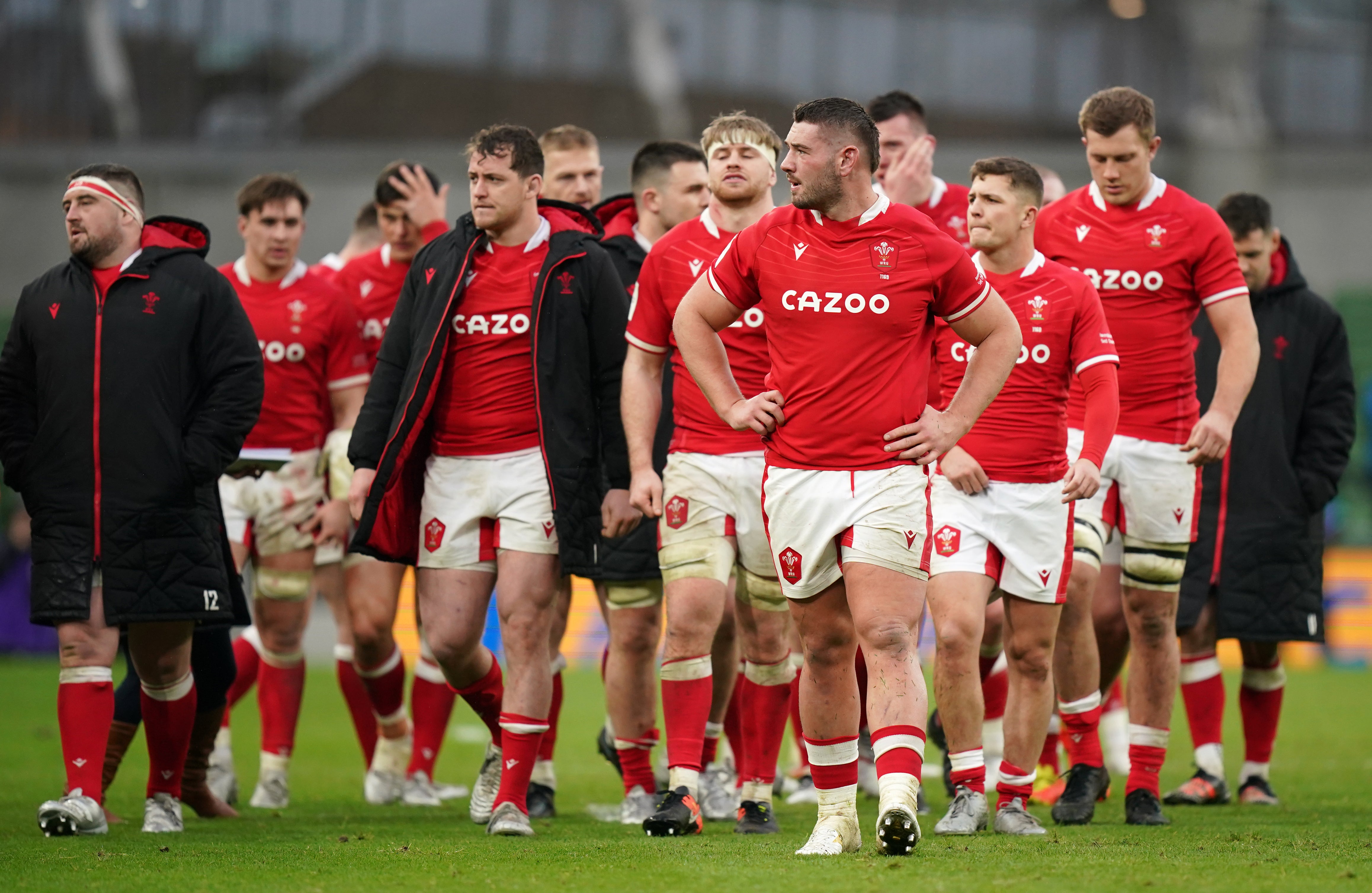Dan Biggar disappointed with Wales display in Dublin defeat
The visitors’ Six Nations title defence began with an emphatic loss.

Your support helps us to tell the story
From reproductive rights to climate change to Big Tech, The Independent is on the ground when the story is developing. Whether it's investigating the financials of Elon Musk's pro-Trump PAC or producing our latest documentary, 'The A Word', which shines a light on the American women fighting for reproductive rights, we know how important it is to parse out the facts from the messaging.
At such a critical moment in US history, we need reporters on the ground. Your donation allows us to keep sending journalists to speak to both sides of the story.
The Independent is trusted by Americans across the entire political spectrum. And unlike many other quality news outlets, we choose not to lock Americans out of our reporting and analysis with paywalls. We believe quality journalism should be available to everyone, paid for by those who can afford it.
Your support makes all the difference.Wales captain Dan Biggar admitted that Ireland “won too many physical collisions” after the reigning Guinness Six Nations champions subsided to a 29-7 defeat in Dublin
It was Wales’ heaviest Six Nations loss since losing by a 23-point margin against the same opponents at the Aviva Stadium eight years ago.
And it immediately puts them on the back foot in terms of a successful title defence, with effectively no more room for error, starting against Principality Stadium visitors Scotland next Saturday.
Wales were not at the races in front of a sold-put 51,700 crowd, conceding four tries and only breaking their points duck five minutes from time when their best player – flanker Taine Basham – touched down, and Callum Sheedy converted.
Biggar led his country for the first time as Wales launched their Six Nations campaign without injured regular skipper Alun Wyn Jones, who was joined by fellow absentees like George North, Ken Owens, Justin Tipuric and Josh Navidi.
“We said the discipline and the physicality were the two things that we needed to bring, coming to Dublin, and we probably didn’t get those two quite right across the whole 80 minutes,” Biggar said.
“There is no doubt it was a frustrating afternoon. We didn’t get enough front-foot ball or dominate enough collisions to really allow us to put pressure on Ireland for large periods, like they did to us.
We know we are better than that, and we have got to make sure we get a bit more edge to us in training
“Ultimately, Ireland won too many physical collisions, and for us, for whatever reason, that is what we need to go back on and have a look over the weekend and on Monday.
“The collisions in rugby, if you don’t win them and especially against a team the way Ireland play, it was going to be a hard afternoon, and that is how it turned out. That will be a huge focus for us this week, along with the discipline.
“We are better than that today, really. We know we are better than that, and we have got to make sure we get a bit more edge to us in training this week.
“Not overthink things, because there is not a huge amount to fix. Physicality is a huge one, and discipline. I am really proud to lead the team out, but it was a disappointing afternoon, there is no doubt about that.”
Wales are without a Six Nations win at the Aviva Stadium since 2012, and they never threatened an Ireland team in a rich vein of form that saw them continue from autumn successes against New Zealand and Argentina.
The visitors offered little in attack and had centre Josh Adams sin-binned, and although they rallied during the final quarter it was a case of way too little, too late.
Wales head coach Wayne Pivac said: “Collectively, we talked about the start we wanted – we wanted to match them physically.
“You have to do that when you come to Dublin, and our discipline needed to back that up. We weren’t able to do that – it was evident with the penalty-count in the first 20 minutes.
“When you are defending for long periods like that – there were 100-odd tackles made in the first-half – it makes it very difficult when we do get our hands on the ball.
“It will be the performance you want to improve on. We will go away and work very hard, the players will look at their performance and come back in a positive frame and build on some of the good things that we did in that game.
“As I have alluded to, when you make over 100 tackles in a half, a bit of fatigue does set in. It happens to any side.
“I thought the boys came back very strongly in that last quarter of the game and kept fighting towards the end, which we want.
“We have to make sure (about) the start of both halves, because we gave them too many points in that part of the game.”